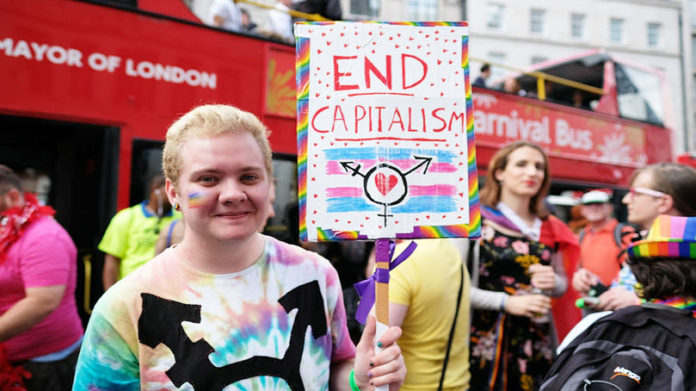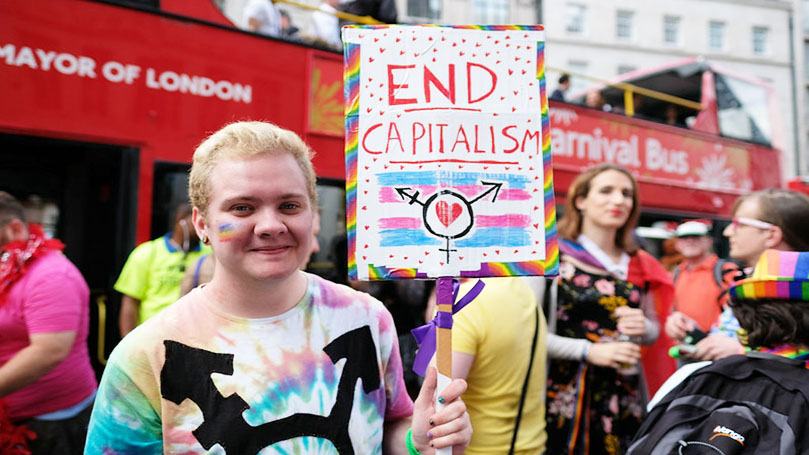
The following article has been adapted from a talk presented at the Little Red Schoolhouse in New York City, July 28, 2022. Part 2 will be posted next week.
Good afternoon, everyone. Some of you may be familiar with my name, Eric A. Gordon, as a writer. I’m the Cultural Editor of People’s World and a frequent arts reviewer. Of course, it’s a small staff, so I also do political reporting, labor coverage, and copy editing of submissions by other writers. I’ve been on the PW staff since 2014. I’ve been a member of the Party since 2009, but have a much longer connection with it, and admiration for its history and members.
Even before I had formally joined the Party, I served on the Jewish Commission, and when that dissolved I joined the Party’s Religion Commission. I’ve been part of local Party work in Southern California—I live in Los Angeles—and am active in the Writers Club. One of the tasks I enjoy very much at PW is working with younger or less experienced writers and helping them shape their articles into publishable stories, so I hope to be hearing from some of you in the weeks and months ahead. My email is gordon@peoplesworld.org. I’m currently engaged in an eight-volume set of translations of fictional work by the late Álvaro Cunhal, pen name Manuel Tiago, who was the longtime leader of the Portuguese Communist Party. These books are being released by our own Party-affiliated publishing house, International Publishers.
I owe a great debt of gratitude to my PW colleague C. J. Atkins, who delivered an earlier version of this talk to last year’s Party school. I’ve adopted, and adapted, his talk, adding many personal reflections.
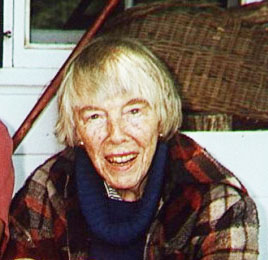 One of my most influential friendships growing up was with a woman born in 1911 named Betty Millard, whom I met in 1957 when I was 12 and she was 45. She attended my bar mitzvah a few months later. Nineteen fifty-seven was a tough year to be a Communist. She had been an editor at New Masses magazine, and she’d written pamphlets published by the Party on women’s roles in the party and how the Party should formulate “the Woman Question,” as people referred to it then. She was interrogated by the House Committee on Un-American Activities chiefly because of her role as representative from the Congress of American Women to the Women’s International Democratic Federation. She had also spent years publishing a monthly magazine called Latin America Today, a roundup of political developments in the area.
One of my most influential friendships growing up was with a woman born in 1911 named Betty Millard, whom I met in 1957 when I was 12 and she was 45. She attended my bar mitzvah a few months later. Nineteen fifty-seven was a tough year to be a Communist. She had been an editor at New Masses magazine, and she’d written pamphlets published by the Party on women’s roles in the party and how the Party should formulate “the Woman Question,” as people referred to it then. She was interrogated by the House Committee on Un-American Activities chiefly because of her role as representative from the Congress of American Women to the Women’s International Democratic Federation. She had also spent years publishing a monthly magazine called Latin America Today, a roundup of political developments in the area.
I didn’t know it at the time, nor did I have the vocabulary for it, but she was also a lesbian. I also didn’t have a name for myself — a pre-gay kid who delayed my coming out until 1971, two years after the Stonewall Rebellion, when I came to realize I was not the only person in the world with the feelings that I had. My friendship with Betty in the early years didn’t touch on such matters, but as I reflect in later life, I recognize an emotional attraction, apart from our similar political mindsets, that kept that friendship so alive and meaningful to us both until her death in 2010.
Only in recent years has Betty’s importance as a Party leader, and as a lesbian, come to prominence as feminist scholars dig deeper into the archives — which are at Smith College.
It was the feminist movement that taught us “the personal is political,” as women came to grips with their feelings of oppression and collectively came to understand that what they were experiencing as a gender was virtually universal and could not be explained by individual psychology, or resolved by psychotherapy, but was the result of class forces that had been in motion for many centuries.
For Marxists accustomed to a class analysis, and especially to those who have opened The Origin of the Family, Private Property, and the State by Friedrich Engels, this was not exactly news, but now millions of people, men and women, LGBTQ folk, could see themselves in a larger, longer historical and global context.
Thus, when I finally came out at the grand old age of 26, I had enough self-awareness to throw myself into the new Gay Liberation Movement (LBTQ and the + would come later).
A Marxist understanding of Queer oppression
We know that sexuality is not fixed. It is a continuum, a fluid phenomenon with so many different expressions and desires making up who we are. By saying “we” I do not mean only humans! We have observed same-gender attachment in the animal world, certain species that exhibit so-called male and female characteristics at different times, and in the plant world.

If we trace human history back to the emergence of civilization, and look to early artifacts, pottery, painting, sculpture, and later the written word in the form of poetry and religious texts, we see that people have engaged in same-gender activities and relationships since prehistoric times. In some cultures there may have been distinct categories for people whose primary interest was in their own gender; in many societies, such as in the ancient world, Greece, for example, a person might well be married and have children and at the same time bond with a male lover in war, or take on a younger man, an adolescent, let’s say, to mentor.
Women might also form special friendships with other women without abandoning their husbands, or use their sexuality, like Lysistrata, to withhold their bodies from their menfolk so long as the men pursued the wars they loved to fight. The fact that certain verses in the Bible seem to condemn homosexual acts is an open admission that such acts and such people existed. Yet, I would point out that in his attempt to reform the Jewish life he was born into and make it less legalistic and formulaic, and more above love and sharing the wealth, the prophet Jesus, who opened his arms to all without judgment, never said a word against homosexuality. Christians should be reminded of that!
People being people, no doubt some, if they felt ostracized and “different,” sought each other out if they shared common interests and desires. But as a distinct and recognized segment of the population, as a community, this came later. For the most part, Queer people, though they have always existed, were not collectively aware of themselves, and were typically suppressed into silence and pushed to the margins, and far too often persecuted, villainized, run out of town, or burned at the stake.
For our purposes, we need to start with the premise that in the modern world defined by capitalist relationships, the oppression of all sexual minorities, and women, is a contradiction of the system.
As you’ve probably already learned, capitalism and bourgeois society are revolutionary — it’s liberating! — compared to the feudalism that came before it. But at the same time, it has its own means of oppression and control that are used to maintain the system of private profits.
Just think about what we see today — Queer television programs like RuPaul’s Drag Race, Queer Eye, and Legendary, a Broadway musical like The Prom, are pop culture phenomena; corporations today rush in to get their rainbow logos and branding out on social media and onto products during Pride month; openly gay Pete Buttigieg is our Secretary of Transportation; and Rachel Levine, a transgender woman, gets Senate confirmation to be the U.S. Assistant Secretary of Health.
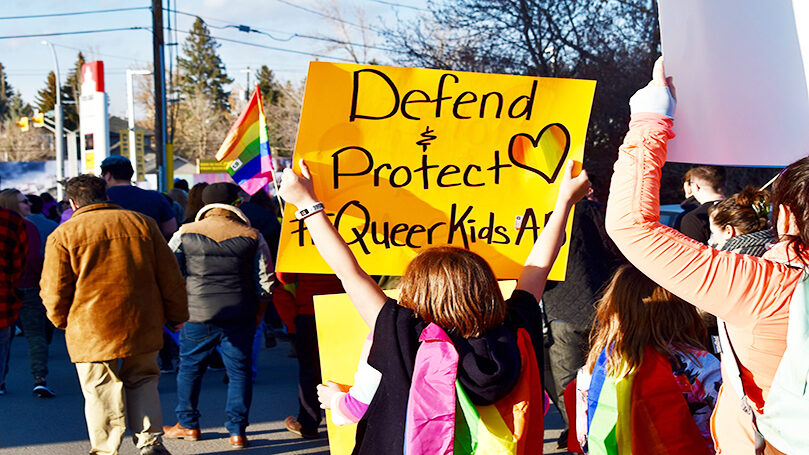
While all those are positive moves, at the same time the very right of transgender people to exist is under attack in state legislatures across the country; evangelical preachers are openly calling for LGBTQ people to be shot in the head, knowing that some crazies with guns will do it; teachers can be fired for introducing age-appropriate books and topics about gender in the classroom or even answering a kid’s question; Queer youth are still five times more likely to attempt suicide than straight kids; and about half of LGBTQ workers in the U.S. still feel they have to hide their relationships in order to avoid discrimination on the job.
That’s the kind of contradiction that we see again and again under capitalism. After a long fight for justice, companies often find that “equality” — when done a certain way and marketed appropriately — can be profitable. But when equality or liberation push too far and threaten the status quo, they are targeted for suppression.
LGBTQ oppression, much like women’s oppression, is tied to the central role that the heterosexual monogamous nuclear family plays under capitalism to inculcate and enforce certain gender norms and to outsource the care and costs of raising current and future generations of workers.
Furthermore, like racism and sexism, the oppression of Queer people under capitalism serves to keep working-class people divided and distracted — focused on splits among themselves rather than on the real split, the only one that has truly transformative potential, the one between classes.
Conservative right-wingers, bourgeois ideologists, and religious fundamentalists try to depict the family — one man, one woman, with their children — as a holy institution that has existed unchanged since Adam and Eve, the ideal human social arrangement. But the truth is that the family as we know it has not always existed.
In the time before class society, human social organization was based on large clans, collectives that produced necessities and gathered food together. Distribution of those necessities and the raising of children were largely collective, cooperative tasks. There was a division of labor between men and women in those societies, but no systematic and generalized oppression of women. In some cultures, women held a higher status than men.
The roots of sexual minority identity and the oppression of queer people — lesbians, gays, bisexuals, transgender persons, non-binary persons, and any others deemed sexually deviant — can be found in the always evolving role of the family under capitalism.
In very ancient times, the technical ability to produce surplus did not exist. There was no “wealth” as such to be hoarded, thus class inequality didn’t have much of a foundation. Life was mostly a hand-to-mouth matter, subsistence living for pretty much everyone.
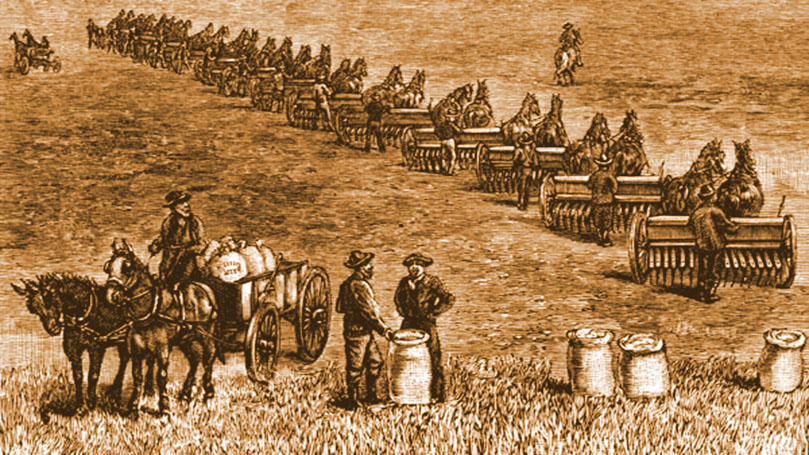
As technology advanced, especially in farming, new methods of getting food and making the things people needed required a new division of labor. Some needed to do the labor, and some needed to manage the work and ensure that the surplus was properly stored and accounted for so there was a safety net when crops failed or weather turned bad.
These coordinators, or leaders, over time, became rulers, controllers of the surplus, eventually morphing into the owners of the surplus. There was now an incentive to exploit and oppress the labor of others. For the first time, this also meant that there was wealth — amassed property — that could be passed on to the children of those that possessed it.
So with the appearance of social classes and the possibility of inheritable wealth, you get the rise of monogamy (at least imposed on women) so that male leaders and owners could ensure that it was their offspring who inherited control and possession of their property — thus the growing predominance of the patriarchal family.
Monogamy and the new “family” structure was not about emotion or love; rather, it was an economic institution. The nature of this development can be found in the word “family” and its Latin roots. The early Romans used the word “famulus” to refer to household slaves, and “familia” to describe the “total numbers of slaves belonging to one man.”
I am reminded of a slogan we in the Lavender Left used to chant at Pride marches in the 1970s, “2, 4, 6, 8! Down with family, church and state!” Sometimes it seems I’m the only living dinosaur who remembers that. We had read our Engels.
In feudal society, life for most people was confined to an agrarian and rural existence. Separated from other humans outside the family or the people of the particular estate where one lived, the opportunities for any kind of sexual deviance or finding others who might be so inclined were rare. But with the transition from feudalism to capitalism, that all begins to change.
Changes in the mode of production driven by technology and class struggle resulted in massive social change. The rise of an urban commercial class — what we call the bourgeoisie — challenged the old feudal ruling class for power. The rise of the bourgeoisie was wrapped up with the development of new technologies — mechanized production that required a large labor force freed from farm work.
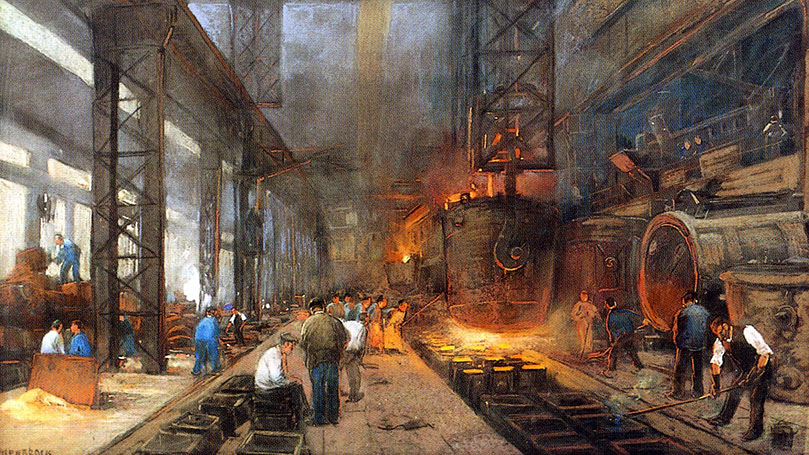
It was the Industrial Revolution beginning in the late 18th century — mining, mills, factory work, forced labor camps called “plantations” producing goods for the global market — that created the potential for large numbers of ordinary working people to live outside the monogamous nuclear family that had characterized rural feudal life. Apart from enslaved people in the colonies, they were “free laborers” selling their labor power on the market to capitalist buyers. Cities grew up, where an individual could enjoy a certain anonymity and meet like-minded others, thus eventually allowing modern gay, lesbian, and bisexual identities to come into existence.
Workers were also increasingly living a major portion of their lives outside the home. A person now had a home life and a more public life. Capitalism thus produced the very notion of modern individuality — the independent urban worker no longer tied to a particular lord or piece of land, and “free” to define their own life outside of working hours.
Sexual autonomy became a reality as people developed groups of friends and lovers linked to their desires unsanctioned by family, church, and state. But the lives that these “sexual deviants” haltingly built were still heavily policed and carried on in secret, because the rising capitalist state and its ideological support apparatus — medicine, law, academia, eventually psychology and psychiatry, and of course always the church — still aimed to maintain the monogamous nuclear family as much as possible: There was still a need for a future exploitable workforce, after all, and armies and navies to pursue royal imperial adventures.
So capitalist reformers and religious ideologues of the Victorian period reinvented the family, with the rise of the so-called family wage that pays men enough to support a wife and children and send women back into the home to raise the kids. The family wage was always a scam, of course, and many women still had to search out ways to make extra money to get by.
Despite that reality, the family is enshrined as the social ideal. Any sexual identity or behavior outside its bounds is anti-social and thus to be condemned. All kinds of non-procreative sex were targeted. Masturbation is pathologized, age-of-consent laws are put on the books for the first time, homosexual acts are outlawed, youth are rendered asexual, and birth control in any form is outlawed.
Entire categorizations of people based on their sex acts are developed for the first time. It’s only in the 1890s that the words “heterosexual” and “homosexual” were first coined. Capitalism’s solution for the problem it had created for itself was once again purchased with a new round of oppression.
Marxist writer John D’Emilio (Capitalism and Gay Identity) described this dynamic:
On the one hand, capitalism continually weakens the material foundation for family life, making it possible for the individual to live outside the family, and for a lesbian and gay male identity to develop. On the other, it needs to push men and women into families, at least long enough to reproduce the next generation of workers. The elevation of the family to ideological preeminence guarantees that a capitalist society will reproduce not just children, but heterosexism and homophobia. In the most profound sense, capitalism is the problem.
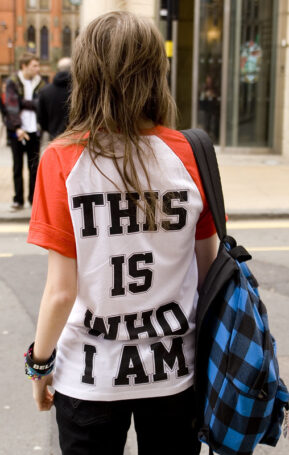 So to sum up this theoretical section: By freeing people from the economic bonds of feudalism and the isolated existence of the farm, capitalism created the material conditions for large numbers to lead more autonomous sexual lives. Thus lesbian, gay, bisexual, transgender, non-binary people, all sexual minorities, were able to, usually secretly, pursue the intimate lives they desired and to find one another thanks to capitalism’s destruction of feudalism, its “free” market in labor, its urbanization, and, above all, its revolutionary alteration of family life.
So to sum up this theoretical section: By freeing people from the economic bonds of feudalism and the isolated existence of the farm, capitalism created the material conditions for large numbers to lead more autonomous sexual lives. Thus lesbian, gay, bisexual, transgender, non-binary people, all sexual minorities, were able to, usually secretly, pursue the intimate lives they desired and to find one another thanks to capitalism’s destruction of feudalism, its “free” market in labor, its urbanization, and, above all, its revolutionary alteration of family life.
But almost as soon as Queer people were freed to come into existence, they were demonized and subjected to control and repression. This tension, this contradiction, continues to define sexuality under capitalism and the fight for LGBTQ liberation.
We now have the basis of a Marxist understanding of the roots of LGBTQ oppression. Before moving on, we pause for a moment to remind you that all of this analysis was carried out by later Marxists using the methodology and practice of Marxism — but not by Marx or Engels themselves. The two founding fathers of “scientific socialism” had very little to say about homosexuality other than a few rather derogatory and homophobic remarks about political opponents. They were not pioneer fighters for gay rights; like all humans, they were themselves products of their own time and society, as everyone is — as we are today. But they did provide the tools which allowed later generations to go beyond them.
Next week: In part 2, Eric surveys a few of the landmarks in Queer political history and discusses the CPUSA’s “two-track” history in this area of struggle.
Images: End capitalism, Alisdare Hickson (CC BY-NC 2.0); Betty Millard, Peoples’ World); Sappho, Greek poet and symbol of love between women, c. 630–570 BC, painting by Simeon Solomon, “Sappho and Erinna in a Garden at Mytilene” (1864), Wikipedia (public domain); Defend & protect queer kids, Trans Equality Now (Facebook); Farming in 19th century, image (colorized) from William M. Thayer, Marvels of the New West, Norwich: Henry Bill Publishing, 1890, U.S. History Images (public domain); Ironworks, painting by Herman Heijenbrock, ca. 1890, Wikipedia (public domain).

